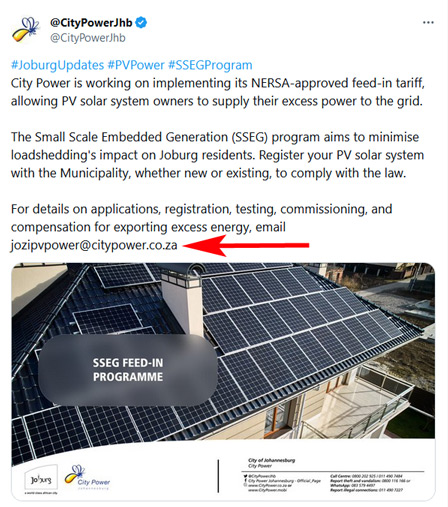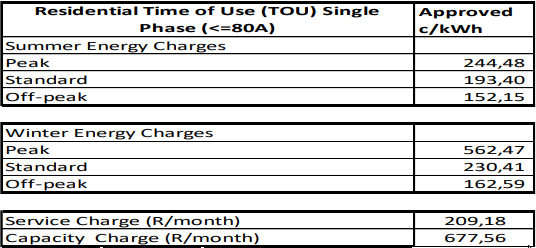The City of Johannesburg (and, I believe, Ekhuruleni) are now requiring registering of rooftop PV systems. They recognise that some systems were installed years ago, and they are allowing retrospective registration.
My installer is offering a deal whereby they arrange a site visit from an engineer, production of drawings etc, and manage the whole process for you. This should not cost more than 5K.
I asked them, they said it’s 5K for everything. Well, if that includes all the standing in queues, getting drawings produced, and everything else involved then I don’t think that is that bad a deal.
I always knew that this day would come, that the City would see that solar is not just a few odd balls, but is now a serious presence in the city, and all these systems connected to the grid have to be up to some sort of specification. And there has to be proper metering.
The whole process offered by my installer is on hold over the holidays. The more I speak to them (or depending on who I speak to in the office) the less clarity there is. So at present I am not sure about the following
- Can I retain my prepaid meter, or are City Power going to insist on me moving to the reseller’s tariff?
- If they are going to insist on the tariff change, then who pays for the meter? If that’s included in the 5K then I’m not too fussed. But is it? (One City Power tech told me that my meter is already equipped for bi-directional metering and needs a firmware change rather than replacement.)
I have decided to accept the offer, though nothing is signed yet, no money has changed hands. If it really is 5K then I’m going to do it and get it over and done with. If there are extras like a new, bi-directional meter, then I … well… ummm…
City Power actually know that I have PV. Or at least I have not witheld that information from them. I have followed two pieces of advice I was given.
1 - from a lawyer - do not volunteer this information, but do not lie about it either.
2 - from a city power contractor - no matter how much credit you have on your pre-paid meter, buy a small amount every 2nd or 3rd month because, in Johannesburg, if you don’t buy a token for three straight months your meter will be flagged for disconnection.


